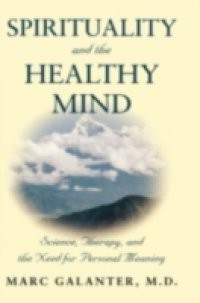Spirituality has emerged as a prominent theme in contemporary culture. It is seen in issues as diverse as Eastern philosophies and religious awakenings; its psychological impact is apparent in alternative medicine, Alcoholics Anonymous, and meditation. In their own ways, each of these has helped people get relief from the problems psychiatrists often treat. But the mental health profession has generally ignored these isues, focusing on specific target symptoms, from anxiety to heavy drinking. Their efforts rely increasingy on medications and brief therapies as they succumb to the chilling influence of managed care. This raises an important question: Can the spiritual and professional, two perspectives that seem different, be reconciled? This book is designed to provide an answer to this question. It draws on recent findings in psychology, neuroscience, and innovative therapies to understand how people in America and worldwide express their spiritual needs. It then shows how the mentally ill, substance abusers, and people troubled by a sense that something is missing in their lives can be helped by developing a sense of personal meaning, while still benefitting from contemporary therapy and medications. Finally, it examines shortcomings in both the biomedical and spiritually-oriented approaches. The book draws on clinical experience and recent research studies, including the author's work over thirty years. This is enhanced by case studies drawn from patients, mental health professionals, the lay public, and even cult members. All this is brought together to create a vivid understanding of how mental health treatment can be made more effective by giving meaning to people's lives.

